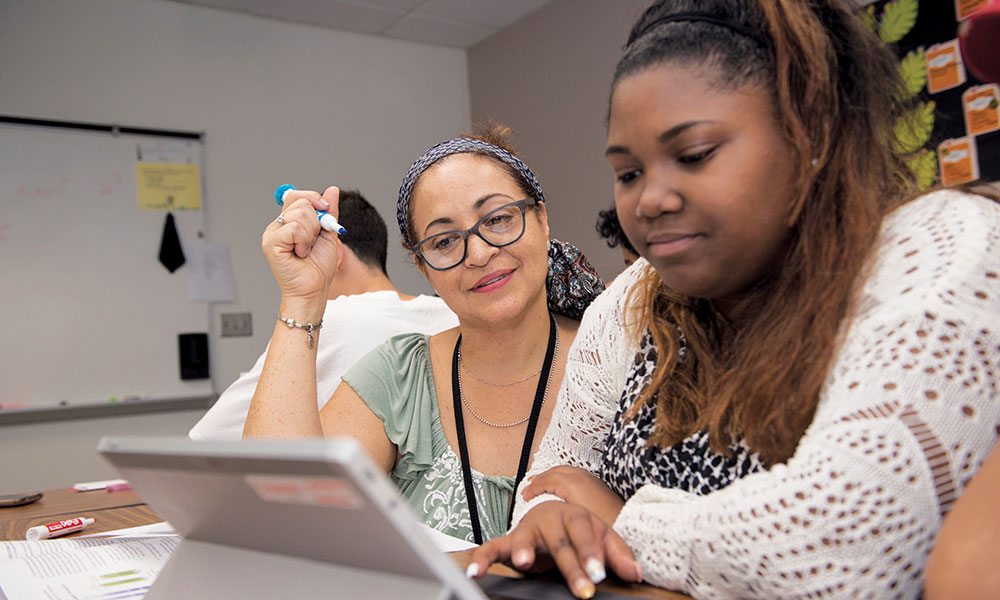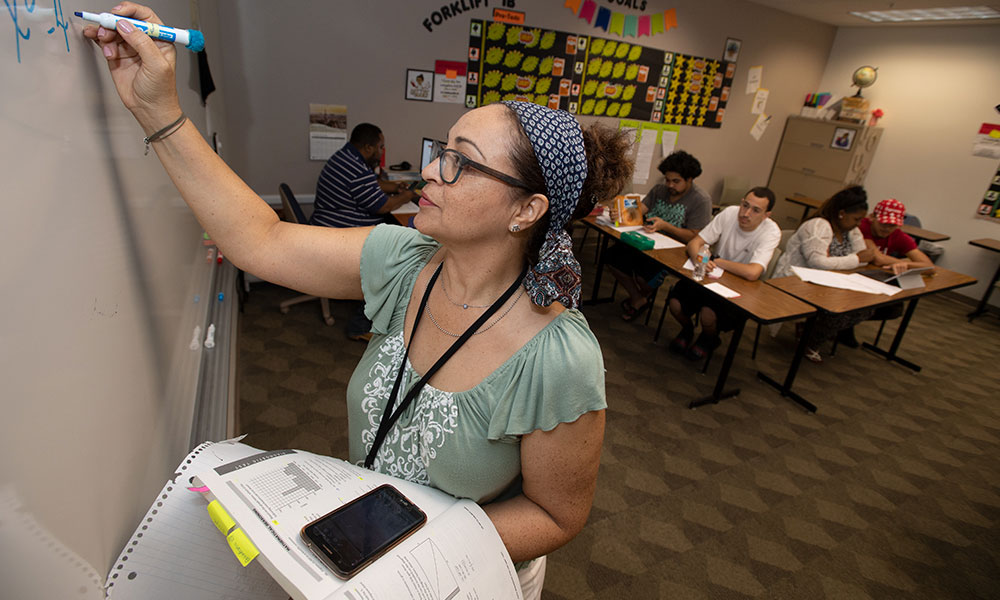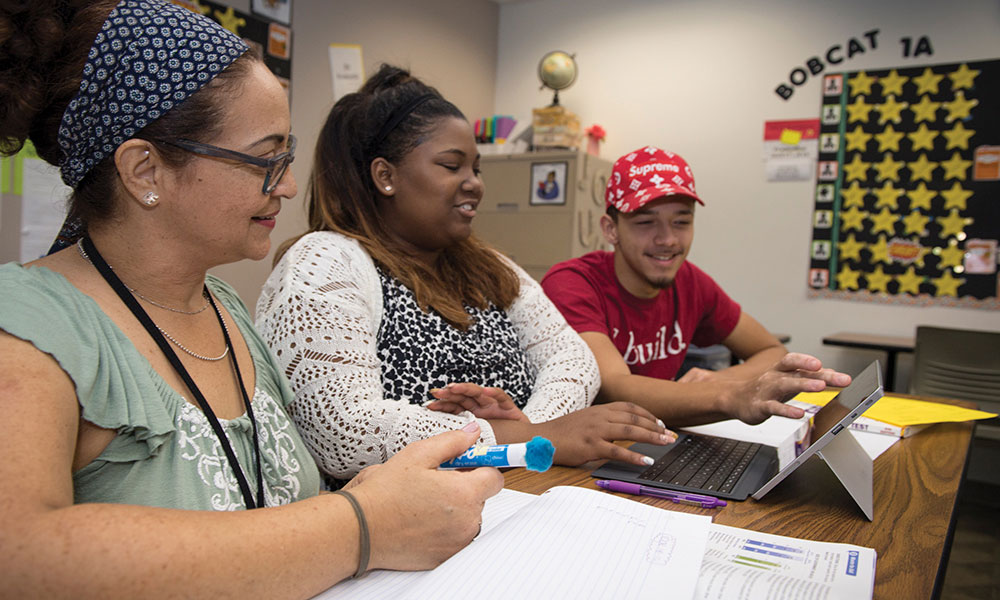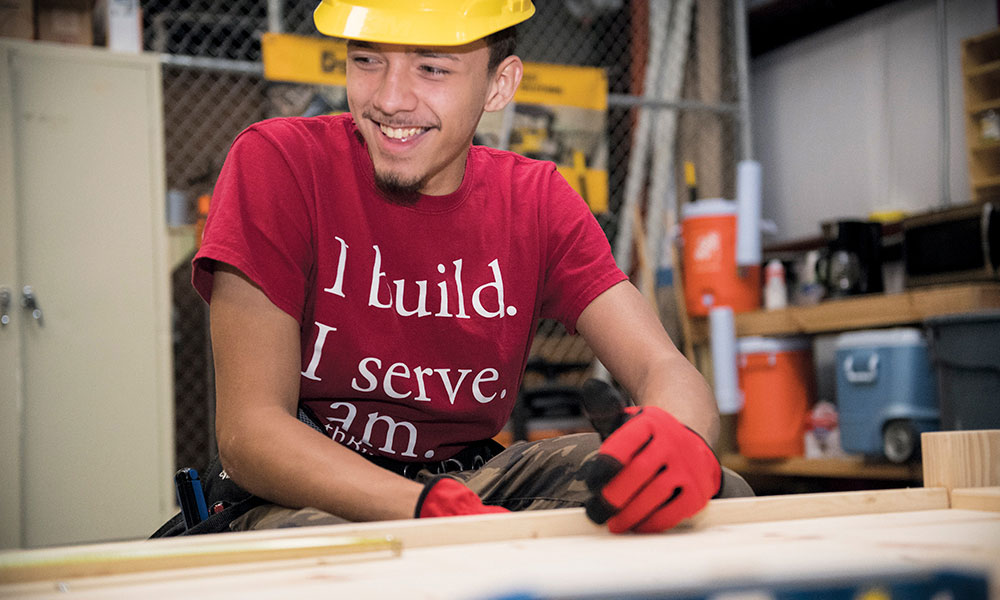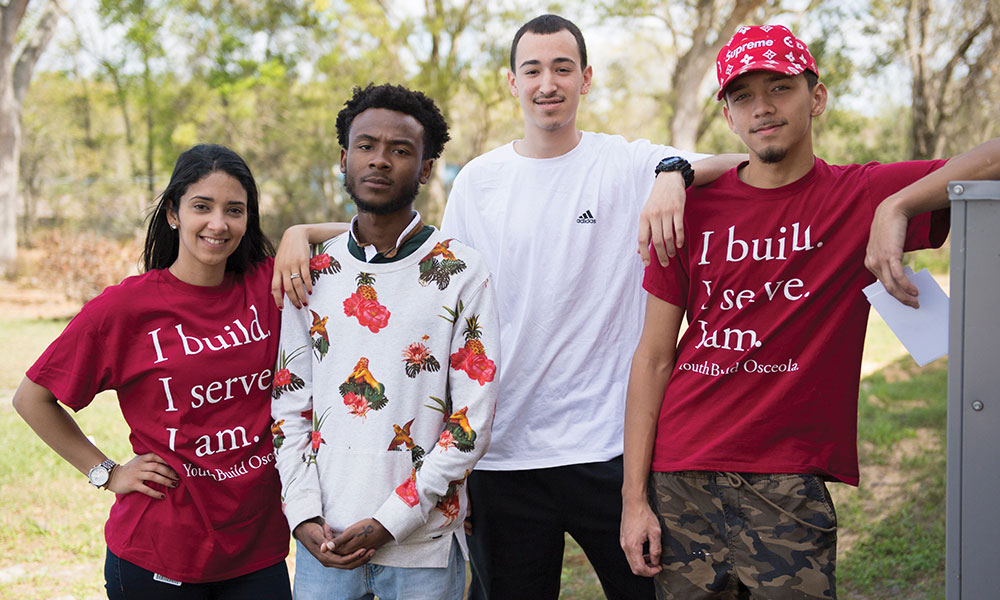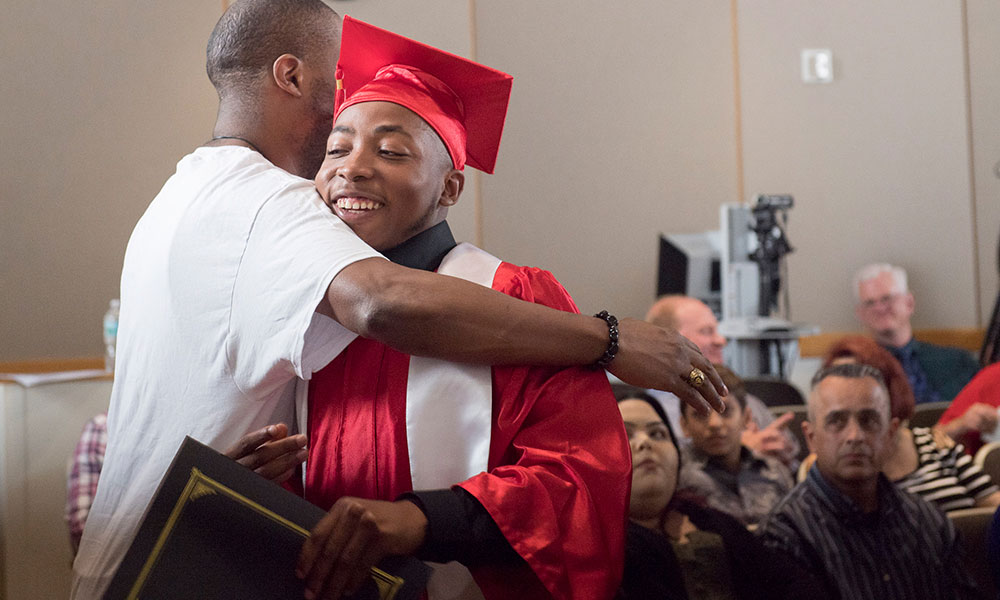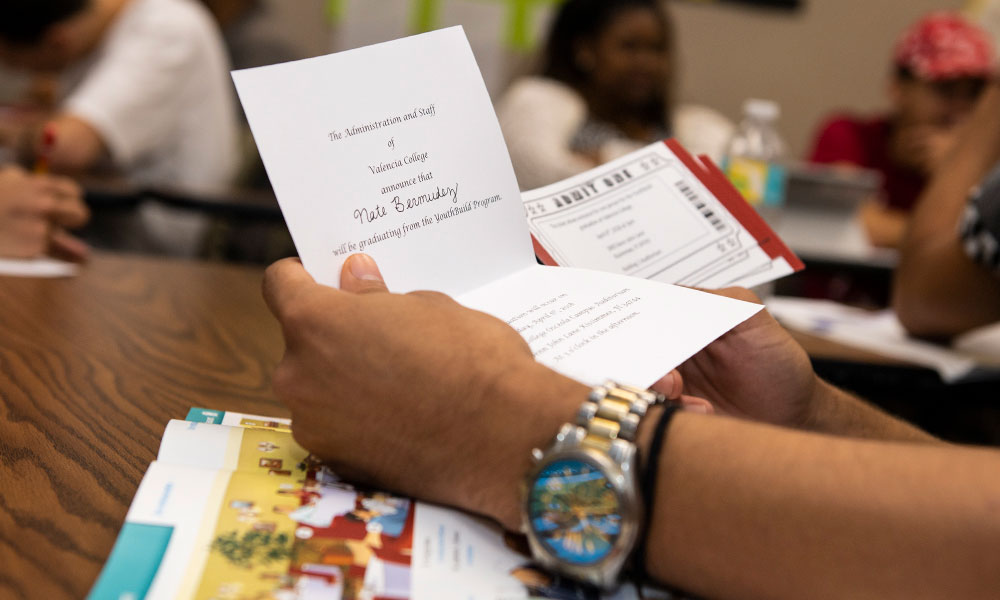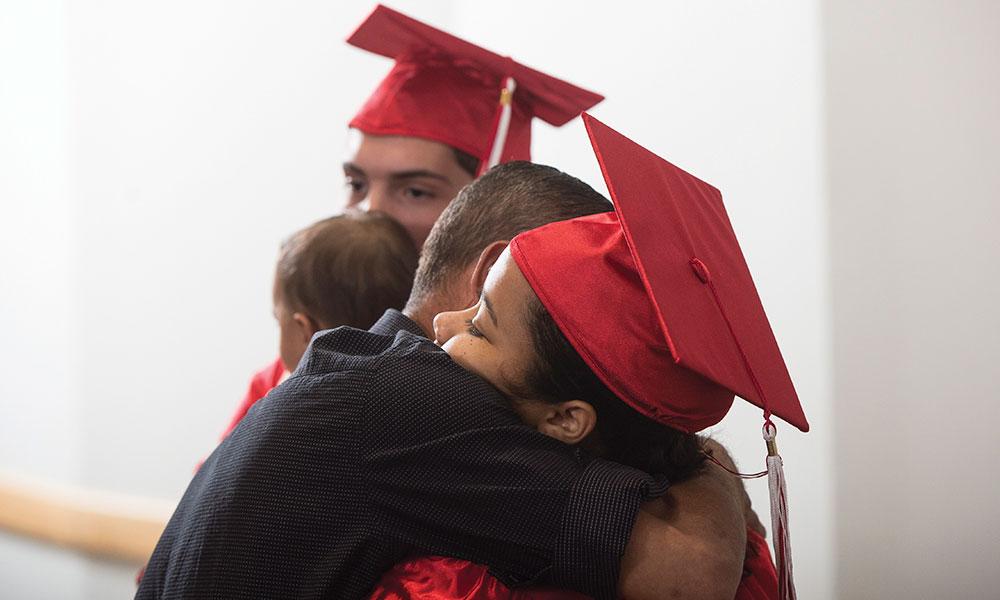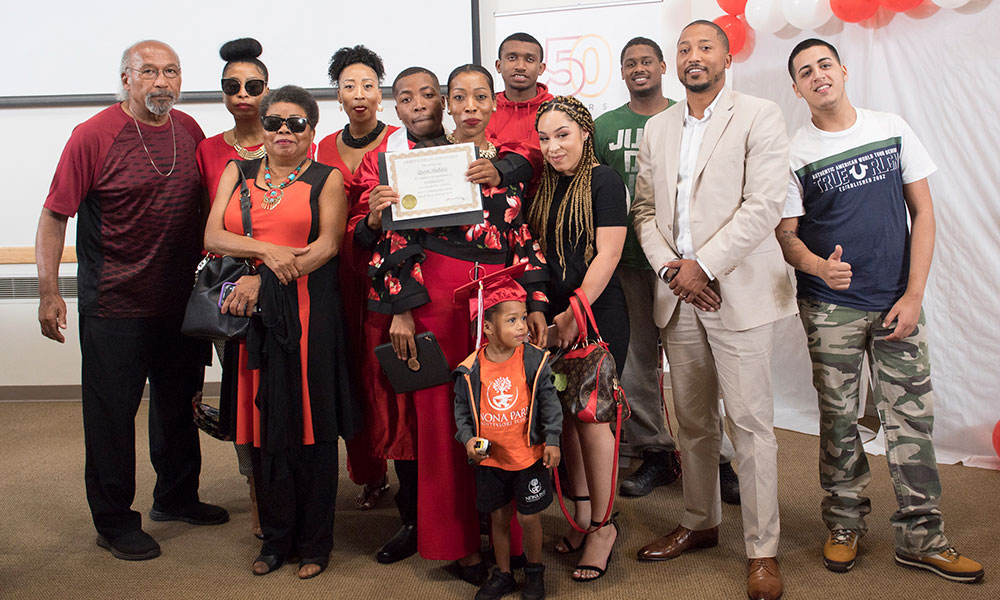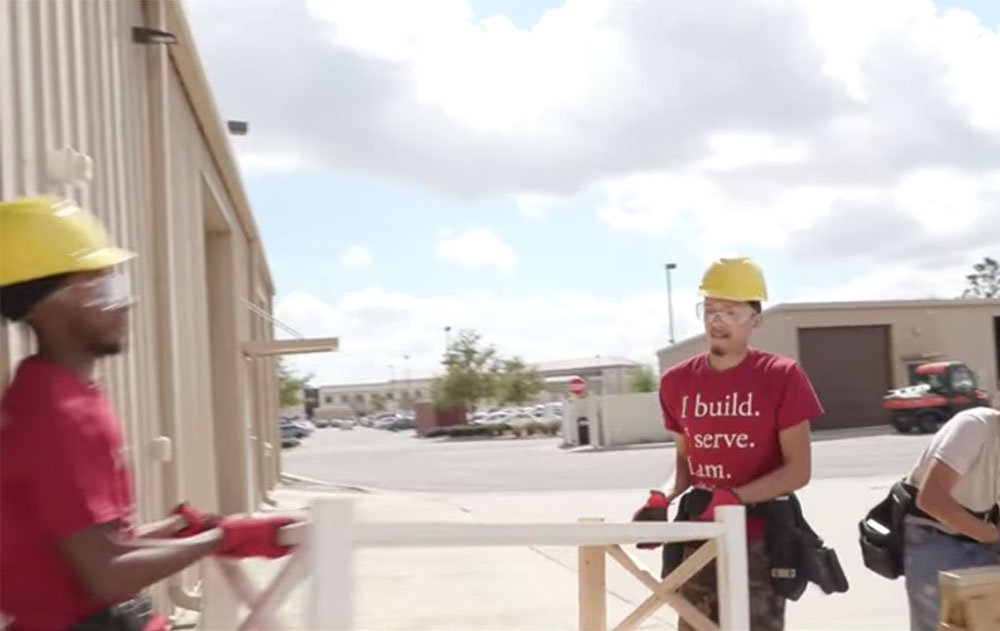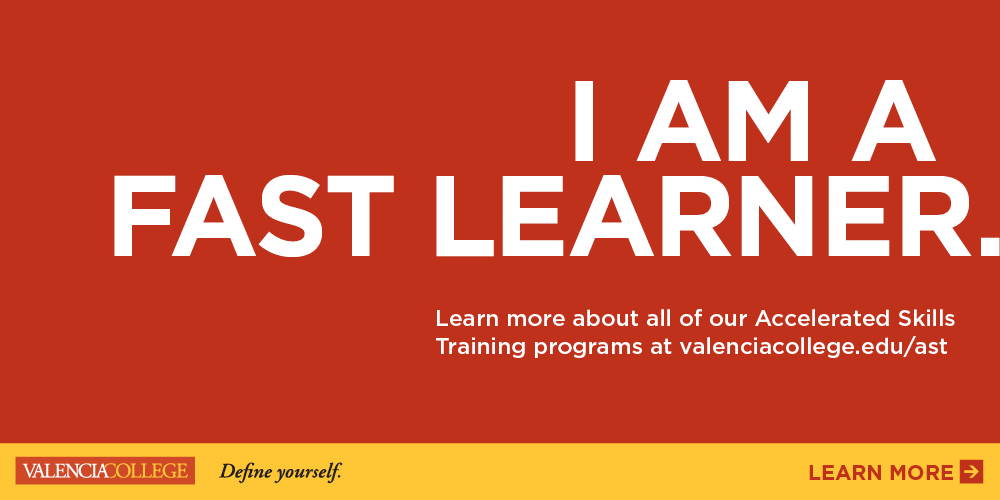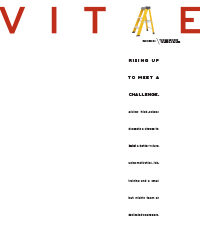
//BY Linda Shrieves Beaty
What happens when you combine high-school dropouts with a small, but mighty team of educators and coaches, and give them a chance to earn a Diploma and get job training? They start building a future.
 hris Rivera struggled in high school. Not in his classes, actually, but in one small arena that would spoil his memories of high school. He couldn’t pass the reading for the Florida Comprehensive Assessment Test. Chris completed high school–earning all the credits he needed to graduate and passing all his classes. But he fell one point short of passing the FCAT for reading.
hris Rivera struggled in high school. Not in his classes, actually, but in one small arena that would spoil his memories of high school. He couldn’t pass the reading for the Florida Comprehensive Assessment Test. Chris completed high school–earning all the credits he needed to graduate and passing all his classes. But he fell one point short of passing the FCAT for reading.
By the end of his senior year, Chris was frustrated and defeated. “I had a mental breakdown. I couldn’t do it anymore,” he says.
Without a high-school diploma, Chris threw himself into work, first in the home-building industry and then landscaping for new homes. But his mom kept bugging him to go back and get his GED. Without a high school diploma, she reminded him, his options would be limited.
Chris, who’s 20, resisted and, instead, focused on working in the construction field and then landscaping. But when his mom heard about Valencia College’s YouthBuild project—a program that helps young people earn their high school diplomas while teaching them construction skills—she signed him up.
“The director said I would get a diploma, not a GED. That really clicked with me, because those kinds of opportunities don’t usually come to me,” says Chris, who didn’t want the stigma that he associates with a GED. “Honestly, it was the best choice I ever made.”
After six month in the program, Chris has earned his high school diploma and seven nationally-recognized construction-industry certifications. Today, he’s taking welding classes at the College’s Advanced Manufacturing Training Center.
“Welding has always been one of my dream jobs,” says Chris, whose welding courses are being paid for, thanks to YouthBuild’s partnership with Career Source Central Florida. “One of my goals is to own my own shop. It’s one of my biggest goals. After this year ends, I want to go back and get my business degree at Valencia College…to learn about taxes, learn how to build my own business.”
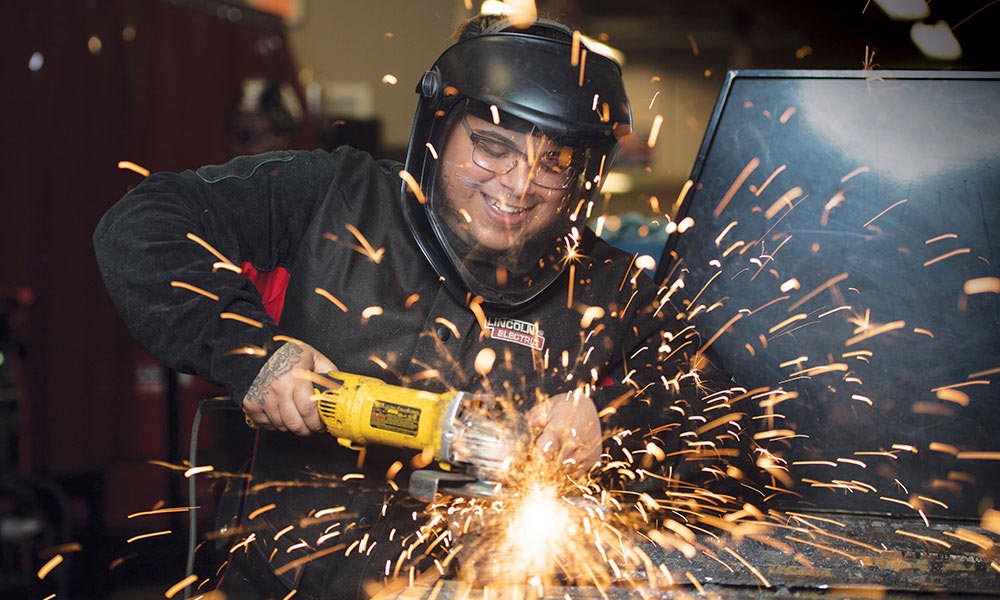
After graduating from YouthBuild, Chris Rivera is studying welding at Valencia College's Advanced Manufacturing Training Center.
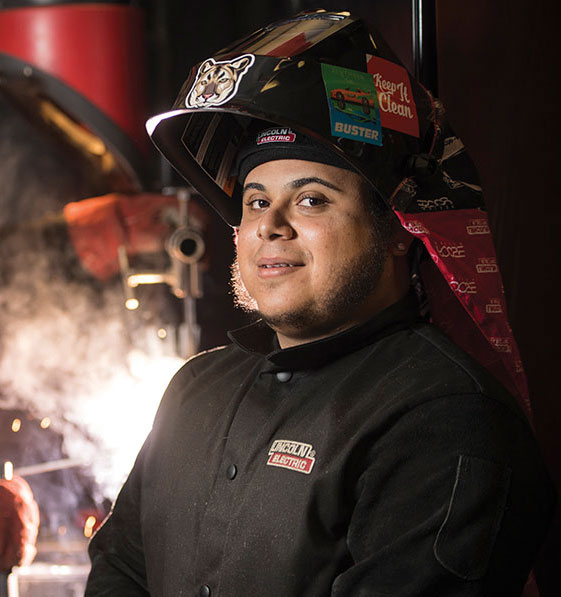
One of my goals is to own my own shop. It’s one of my biggest goals. After this year ends, I want to go back and get my business degree at Valencia College.”
For Chris, and dozens of students in Osceola County, the YouthBuild program is opening doors, by giving them a chance to earn their high-school diploma, while providing them with job training, teaching them life skills and participating in community service so that they can give back to their communities.
Modeled after a program founded in East Harlem in 1978, YouthBuild now has programs across the country and helps about 10,000 students each year. The YouthBuild program, which was launched in July 2017, is funded by a three-year grant from the U.S. Department of Labor.
“The goal of the grant is not only to help students earn their high-school diploma, but it’s to help them find full-time jobs that pay more than minimum wage,” says Michelle Sanchez, YouthBuild’s project director. “That’s why there’s such an emphasis on teaching them construction skills–because with the kind of credentials they’re leaving with, they’ll be able to walk onto a job site and earn more than minimum wage.”
Moms are the number one recruiters for the program, says Sanchez, who grew up in Osceola County and knows the territory. As a former counselor and administrator for Covenant House, she also knows how young people can get tripped up along their journey. But YouthBuild, she says, gives them a chance to earn a diploma, learn life skills and job skills—with the benefit of a team of advisors and teachers who are working with them one-on-one.
Today, there are 37 students in the College’s YouthBuild program and another 15 to 20 are starting classes soon. Monday through Thursday, the students divide their time between studying for the GED test each morning and then spending their afternoons in construction classes. The students move at their own pace in the GED testing. Some earn their diploma in two months; others may take six months to earn it.
Although many programs aimed at drop-outs pay students a weekly stipend—to ensure that the students will keep showing up for classes—Sanchez and her team suspected that wouldn’t work. So she and Clark meet with each student and establish both short- and long-term goals for the students. Every time they meet a goal, they get paid.
The amounts vary: attend the first week of class every day and you can earn $150; create a resume and you’ll earn another $25; open a bank account and you’ll earn another $25; take and pass one GED pre-test and you can earn another $150; complete your first-aid/CPR certification and you’ll receive another $50.
Altogether, students can earn up to $2,600 in incentive money, says Sanchez. One of the biggest incentives is completing 36 volunteer hours at Habitat for Humanity which pays a student $288.
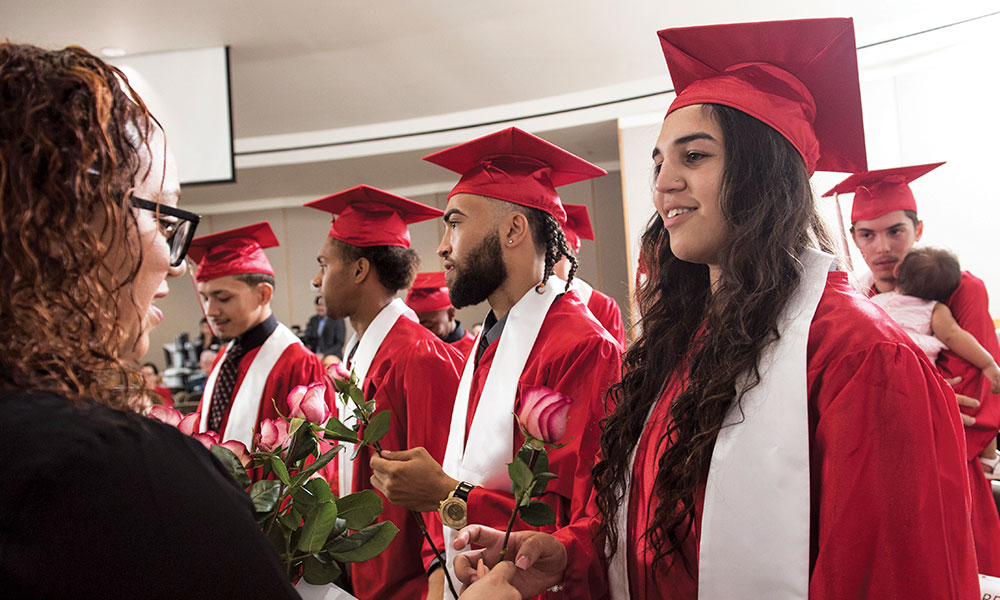
“I have a background working with troubled youth—kids on probation, kids who are in transition,” says Keone Clark, who now serves as a case manager for the YouthBuild program. “Coming from that background, I think this is the best program in Osceola County. This program offers them a second chance. Not only does it offer them an education, but we are teaching them life skills; how to open a bank account, how to get a driver’s license or what they’ll need to do to buy a car.”
Everyone comes in with slightly different objectives, so Clark tailors goals to suit the student. One student wanted to buy a cell phone, so Clark set a short-term goal for him: Research all the different cell phone plans and do a Powerpoint presentation on cell plans for the class. “He did all the research and did the presentation on it and, by the end of his presentation, he convinced all of us that we needed to be on Cricket,” said Clark.
The goal of the grant is not only to help students earn their high-school diploma, but it’s to help them find full-time jobs that pay more than minimum wage.”
The students are also required to give back to the community, in the form of constructing a building or public service. So on Fridays, the team heads to the Osceola County Habitat for Humanity ReStore to perform community service. And, over the next year, when the local Habitat affiliate has property ready for a house to be built, the students will help construct the house. Until then, the YouthBuild students have helped remodel the ReStore, unload trucks and built furniture, including coffee tables, bookshelves, picnic tables and Adirondack chairs, to be sold at the Kissimmee ReStore.
Of course, not every student wants to make a career in the construction business. But they’ll leave the program with the skills that will make them immediately employable—or a good homeowner. Yet for many, it’s the diploma, not the work training, that is most attractive.
“These kids are so excited,” says Sanchez. “Every single day, they ask me, ‘When is graduation? Am I really going to have a cap and gown?’”
Most want a diploma, not a GED, which to some students carries a stigma. Some got in trouble at school and got kicked out as juniors or seniors. But about half the students finished high school, but couldn’t pass the FCAT. And they are scarred by the frequent testing in school.

“Some of them are terrified of the testing,” says Clark, “so we spend a lot of time preparing them for testing.” To soothe their text anxiety, the YouthBuild team gives them paper tests, tests that they can answer on their cell phones through an app called Kahoot! and regular pre-tests for the GED and helping them build their confidence.”
Twenty-year-old Ramaiyah Bell is learning to overcome test anxiety. As a senior at Gateway High School, she couldn’t pass the FCAT—though she passed all of her classes and earned a certificate of completion. But at YouthBuild, she’s rebuilding her confidence; and building a future.
“I just could not pass the FCAT. In reading, I was always two or three points away. And math was a struggle,” says Ramaiyah. At YouthBuild, she has already passed the reading test, the science test and now she’s studying for the social science/history section. She knows math will be her most challenging subject, so she has saved it for last as she builds confidence with her other “wins.”
“I am building my confidence,” she says. “The other tests I passed on the first try.”
Valencia College is opening other doors for students in the program. At Osceola Campus, the YouthBuild students are indistinguishable from other students and now they are surrounded by students who also want to be achievers.
When is graduation? Am I really going to have a cap and gown?”
“Some of these kids were followers in high school,” says Clark. “And if they are surrounded by people who skip class, they’re going to do it too. At the college, you don’t see that. People are going to class and in their spare time, they’re studying. They’re not just hanging.”
The college has also helped students fit in. Not only do the YouthBuild students receive ID badges, they also get the perks of being a Valencia College student, including free Lynx bus transportation. And, when YouthBuild students went to the campus math tutoring lab for help studying, the lab director provided a dedicated tutor to help them prepare to pass the math requirements for their diplomas.
In 11th grade, Quran Shabazz dropped out of Osceola High School, where he’d been more interested in distractions than in schoolwork. But at Valencia College, Quran has discovered new purpose. “I am surrounding myself with smarter people,” he says. Though he found the class work challenging at first, he’s proud that he has used his incentive money to help buy a truck.
As the students move through the program, the four YouthBuild staffers routinely ask them about goals, and help them figure out their next steps. After Quran earned his high-school diploma, he sat down with Eneydi Rivera, a staffer from Career Source Central Florida assigned to the YouthBuild program, to decide on his next step. In many cases Career Source will pay for the students to continue their education.
“I loved the construction training,” Quran says. “I liked the hands-on part of the class and I was glad that I could learn from experienced people.” With just one more test to pass before he earns his high-school diploma, Quran is looking forward to his next step; enrolling in Valencia College’s heavy-construction equipment program. The nine-week program teaches students how to drive and maneuver bulldozers, front-end loaders, backhoes, articulated trucks and excavators.
Yet, for many of the students, the greatest lesson they’ll learn is that they can overcome the odds and earn their diploma. It’s a lesson in confidence, goal-setting and achieving what they thought they never could.
“I made a goal for myself; to pass the reading test,” says Chris Rivera—noting that it eluded him throughout high school. “When I got my score and saw that I scored 151 over 145 (which was the passing score), I busted out crying. It was one of the biggest things I’d ever done.”

